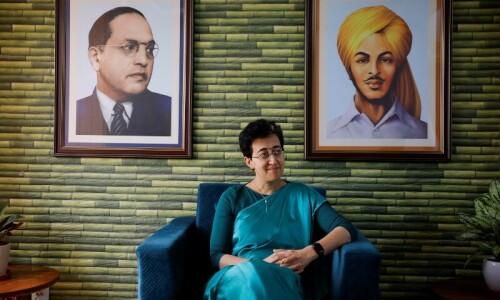ISLAMABAD: China and the Middle East could benefit from each other in areas of energy and trade and serve mutual interests, with Pakistan playing the role of a facilitator.
This was stated by speakers at an event titled ‘China, Middle East, and the Role of Pakistan’ organised by the Institute of Regional Studies (IRS). The event was attended by diplomats, researchers, academics, journalists and students. According to a statement, speaking on the occasion, senior professor of international relations, author and commentator Prof Azhar Ahmad said China possessed technology and economic strength, while the Middle East was rich in capital but lacked technology.
“These interests can be aligned through Pakistan, which can act as a bridge by utilising its good offices, cheap labour and deep cultural understanding of both regions,” he said.
He highlighted China’s role as a mediator for the Global South, particularly in facilitating Saudi-Iran rapprochement last year and the recent initiative to unite 14 Palestinian factions to bring peace and stability.
Prof Ahmad proposed that Pakistan, with its strategic importance, could help elevate the China-Pakistan Economic Corridor (CPEC) into a broader regional initiative linking China with the Middle East, Africa and beyond.
Faculty member at Quaid-i-Azam University Dr Munawar Hussain provided an analysis of China as a key international actor, elaborating on its Middle East policy and exploring the potential role that Pakistan could play in this context.
He stressed Pakistan’s pivotal geo-strategic role in connecting Asia, the Middle East and Africa, suggesting that Islamabad could enhance its diplomatic influence and contribute towards regional stability by extending trade and infrastructure investments.
CEO of Asian Institute of Eco-civilization, Research and Development (AIERD) Shakeel Ahmed Ramay emphasised the shared values and common interests between China and the Middle East.
“The Middle East is inclined toward fostering friendship with China, largely due to the absence of historical conflicts or regional proxy engagements, and the alignment of societal and moral values between the two regions,” he said.
Dr Rizwan Naseer, senior research fellow at the IRS, emphasised that 2023 was very significant for China’s diplomacy in the Middle East, as it achieved objectives in energy security, strategic partnership through BRI, new markets for its technology and balancing the US influence in the Middle East.
Published in Dawn, August 18th, 2024















































Dear visitor, the comments section is undergoing an overhaul and will return soon.